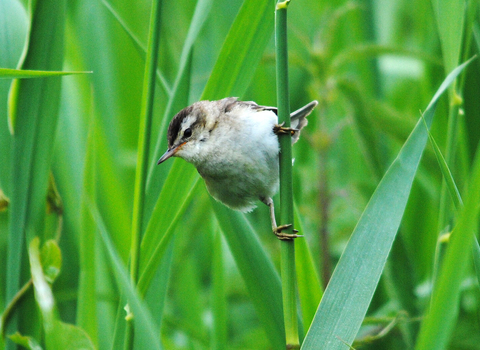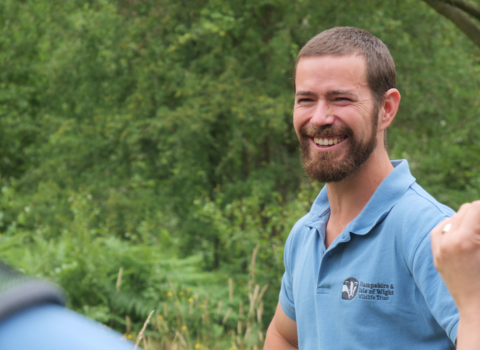Hampshire & Isle of Wight Wildlife Trust
For more than 60 years, Hampshire & Isle of Wight Wildlife Trust has protected the wildlife and wild places of Hampshire, the Island and our local seas. As a charity, our work is only made possible through the generosity of people like you who support us. Thank you.
Leadership Team
The Leadership Team is responsible for the delivery of the Trust's strategic aims and day-to-day management of Hampshire & Isle of Wight Wildlife Trust.
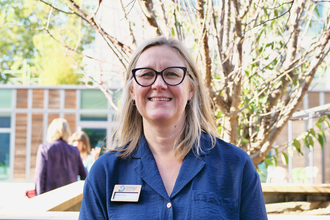
Deborah Tann MBE
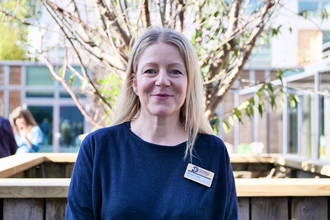
Hannah Terrey
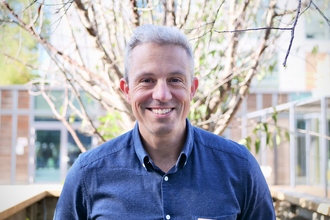
Martin De Retuerto
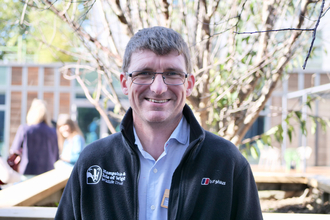
Jamie Marsh
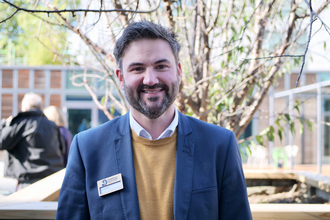
Ian Wadley
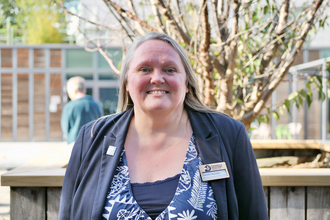
Natasha Thorneloe
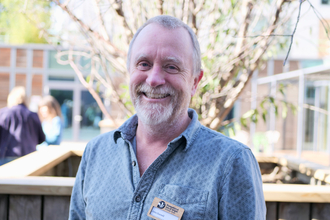
John Durnell
Staff stories
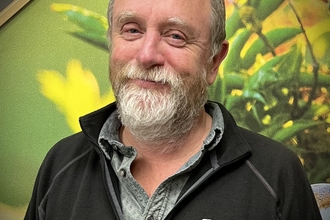
Trust Director Wins Nature Innovation Award
Hampshire & Isle of Wight Wildlife Trust is proud to announce that John Durnell, Director of Nature-Based Solutions and Managing…
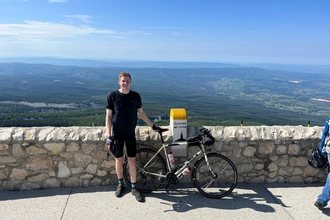
Reserves Officer takes on cycling challenge across France
In May 2023, Reserves Officer Jack Medley took on the monumental challenge of cycling across France from St Malo to Nice, totalling over…
Trust staff take on Romsey Relay Marathon
On Sunday 21st May, 20 members of Hampshire & Isle of Wight Wildlife Trust staff took on the Romsey Relay Marathon to raise money…
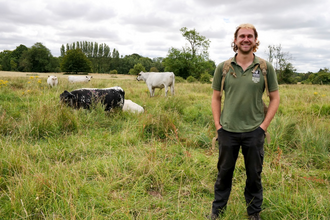
A day in the life of a Wildlife Trust reserves officer
Sam Martin, an assistant reserves officer who cares for several reserves in the Winchester area, describes how he got into conservation…

Assistant Reserves Officer takes on the iconic London Marathon
On Sunday 2nd October Assistant Reserves Officer, Ben Pickup, took on the iconic 2022 TCS London Marathon in aid of the Hampshire &…
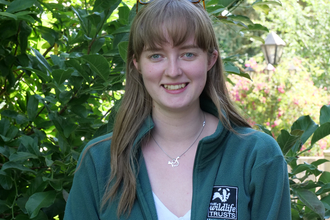
Climate and Sustainability at Hampshire & Isle of Wight Wildlife Trust
Lizzie Laybourne our Climate Positive and Sustainability Lead at Hampshire & Isle of Wight Wildlife Trust, talks to us about her…
Values and Signature Behaviours
Our Vision is for a wilder Hampshire and Isle of Wight where nature is recovering, wildlife is returning, damaged ecosystems are being restored, and everyone benefits from a healthier, more resilient, natural environment.
Our Mission captures the essence of what we do which is to get more people on nature’s side and create more space for wildlife to thrive.
We demonstrate what we stand for through our Values:
Passion, Integrity, Respect, Inclusion, Commitment, Collaboration, Excellence
We live our values through our 8 Signature Behaviours:
1. Foster Respect, Wellbeing, and Professional Development
2. Communicate Well and Regularly
3. Focus on Impact
4. Adopt Sustainable and Cost-Conscious Practices
5. Make Good Decisions
6. Challenge and Innovate
7. Strengthen Relationships Across and Beyond the Trust
8. Cultivate Excellence and Represent the Trust with Integrity
About the governance of the Trust
Hampshire & Isle of Wight Wildlife Trust was established in 1960. It is a registered charity (no.201081) and a company limited by guarantee (registered in England no. 676313) governed by its Articles of Association.
The Trust is a member of the Royal Society of Wildlife Trusts (registered charity number 207238) along with 45 other local Wildlife Trust members throughout the UK which are collectively known as The Wildlife Trusts.
Who governs the Trust?
The Trust is governed by a Board of Trustees, known as Council. Those elected to serve on Council have a dual role as a Trustee of the charity and a Director of the company.
Council is made up of 10-15 members who provide the Trust with a wide range of professional expertise in the fields of conservation, finance, marketing, education, land management, biological research and human resources.
All Trustees are volunteers, give freely of their time and have no beneficial interest in the company or charity. To ensure that Council is equipped to carry out its responsibilities it carries out skills analysis of existing members, inducts new members into the charity and provides Trustee training as required.
Trustees are elected by the members at the Annual General Meeting and Trustees can serve on Council for up to 3 consecutive terms of 3 years and then must stand down for a year if they wish to become eligible to stand again. The exception is that of the Chair and the Honorary Treasurer who can stand for a 4th consecutive term.
As part of the Trust's commitment to diversity and inclusion, the role of Associate Trustee has also been created without the full legal liabilities or voting rights of an elected Trustee. Associate Trustees are encouraged to give a fresh perspective, provide input and comment on recommendations to Council.
Council's specific responsibilities
Trustees are responsible under the Articles of Association for guiding the management and administration of the Trust, its land, property and funds, ensuring that it is solvent, well-run, and delivering the charitable outcomes for the benefit of the public for which it has been set up, through serving on Council.
Trustee authority is vested in the Council meetings and Trustees cannot formally exercise their role as individuals. Council meetings are held quarterly.
Council's specific responsibilities include the taking of all decisions on matters of strategic management and governance, monitoring of operations, land and buildings acquisition and disposal, health and safety, risk management, setting and amendment of investment guidelines, recommending to the AGM the Statutory Auditors for the coming year, approving the Annual Report & Accounts, keeping the Memorandum & Articles of Association under review and appointing and appraising the Chief Executive.
Council has the power to delegate to Committees which provide additional scrutiny, expertise and advice to Council to assist with its decision making. Trustees elect the following officers annually: Chair, Vice-Chair, Honorary Treasurer and Chairs of Committees. Council also appoints a Company Secretary (a paid member of staff) to assist with the governance of the organisation and to support the work of Trustees.
Council delegates responsibility for the day-to-day management of the Trust and all its operations to the Chief Executive, who is therefore accountable to the Board for their performance. The Trustees remains legally responsible for all activities of the charity, including matters delegated to the Chief Executive under the Scheme of Delegation.
Committees
Council is assisted by a number of Committees and Advisory panels that meet on a quarterly or semi-annual basis and report directly to Council, providing expert guidance and advice. All non-staff members of committees are volunteers.
- Business & Finance Committee – provides expertise and advice to Council on all business and financial matters, undertakes scrutiny of accounts, maintains oversight of investments and financial controls, develops policy and provides advice on business risk and resource management.
-
HR & Remuneration Committee – advises Council on HR matters, develops policy and strategy, monitors key HR metrics and provides advice on succession planning and use of volunteers. The committee also has oversight of staff remuneration and benefits and sets remuneration for the Chief Executive.
-
Nominations Committee – ensures that Council has the required skills, experience and diversity, and oversees the recruitment, induction, development and training of Trustees, Associate Trustees and any special advisors.
-
Safeguarding Committee – develops policy and procedures on all safeguarding matters, monitors compliance, reviews any incidents and implements any improvements, advises and reports to Council.
-
Health & Safety Committee – develops policy and procedures on all health and safety matters, monitors compliance, reviews any incidents and implements any improvements, advises and reports to Council.
-
Conservation & Science Advisory Panel – advises Council on conservation policy, research and monitoring, land acquisitions and disposals, drawing on external expertise as well as from Council and staff within the Trust.
-
Strategic Marketing Advisory Panel – advises Council on marketing, fundraising and communications, drawing on external expertise as well as from Council and staff within the Trust.
-
Nature-based Solutions & Trading Board – provides Council with oversight and advice on the nature-based solutions programme as well as acting as the Board of Directors for the Trust's subsidiary companies (which includes Arcadian Ecology Ltd).
Our policies
Safeguarding and Child Protection
We take child protection and safeguarding very seriously. Our Child Protection and Safeguarding Statement sets out how we implement child protection and safeguarding across the Wildlife Trust and who to contact if you have questions or concerns.
Health and Safety Policy
The Trust takes its responsibility for the health and safety of its staff, volunteers and visitors seriously. You can view the General policy statement here.
Equality and Diversity Policy
A copy of our Equality and Diversity Policy can be downloaded here.
Meet our Trustees
Our Trustees are all volunteers and come from many different walks of life. You can find out more about them and what has inspired them to give up their time for the Trust below.
David Jordan OBE, Chairman of Council
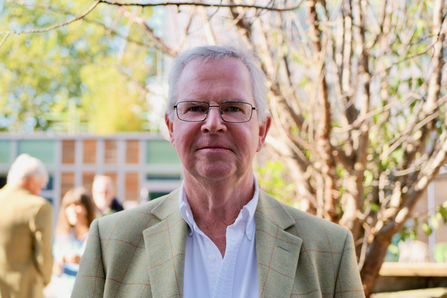
David is passionate about wildlife and the environment. He has a degree in Environmental Biology and a Masters in Freshwater Ecology. David retired in 2015 following a career in the National Rivers Authority and Environment Agency. As Executive Director of Operations he was responsible for the EA’s operations across England and Wales including pollution control, flood risk management and conservation.
David has worked with Interpol on environmental crime. He is the Chair of Sand Dams Worldwide, a charity focusing on sustainable water conservation and agriculture in Africa, and is a Trustee and Honorary Secretary of the Royal Society of Wildlife Trusts.
David has lived in Hampshire for over 20 years and he tries to practise what he preaches on the land that he cares for.
Oliver Cox, Vice-Chair of Council, Chair of Nominations Committee, Equality, Diversity and Inclusion Trustee
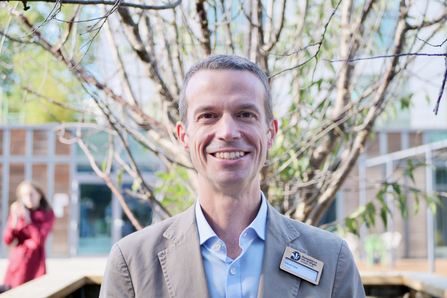
Oliver (Olly) completed a Geography degree at Birmingham University before starting his career as an HR management consultant. Olly then joined Vodafone where he has worked for 20 years in international marketing, commercial and strategy roles. He now combines the roles of Chief of Staff to the UK CEO with heading up the company’s Internal Communications.
Olly lives in the South Downs with his family, spending as much time as possible outside, recreating a garden wildlife haven, enjoying the Hampshire countryside and indulging his lifelong interest in rivers.
Olly is keen to help the Trust grow its commercial and revenue-generating activities and to ensure the Trust is as relevant and connected as possible in an increasingly digital world.
Richard Green-Wilkinson, Treasurer
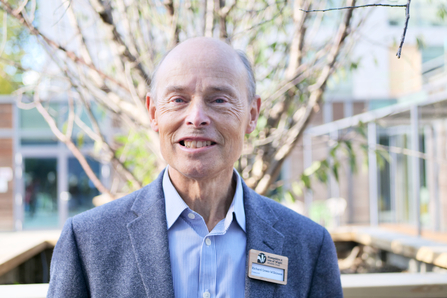
Having retired from a national accountancy practice a few years ago, Richard now works part-time as a family trustee, and non-exec director, providing tax and business advice. He also acts as trustee and treasurer for a number of other charities including St George Foundation (rescuing Street Children in Sierra Leone), Hampshire Gardens Trust and Friends of Winchester Cathedral.
Richard is keen to help the Trust improve the environment and natural habitat for wildlife in Hampshire and the Isle of Wight. He is also committed to reducing his own family’s carbon footprint.
Richard’s leisure interests include tennis, bridge, walking, gardening and theatre.
Rachel Coyle MBE, Chair of Business & Finance Committee
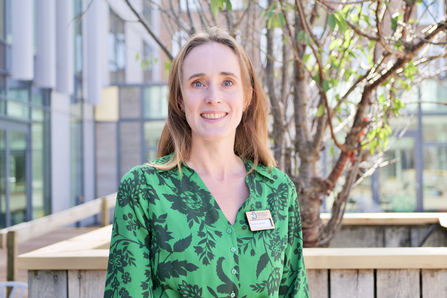
Rachel is the Global Managing Director at the Behavioural Insights Team, a research consultancy that applies behavioural science to the design of policies, products and services that go with the grain of human behaviour. Amongst other things, the Behavioural Insights Team does a wide range of work on environmental and sustainability issues, from promoting the uptake of public transport, to embedding recycling habits, to increasing the effectiveness of wildlife conservation efforts.
Rachel started her career as a civil servant at the Ministry of Defence, and in 2013 was awarded an MBE for Services to Defence.
Rachel moved from London to Hampshire in 2021, drawn by the easy access to the countryside and nature, as well as the prospect of a bigger garden. She is committed to working to preserve these joys for future generations.
Henry Gardener, Information Security Trustee
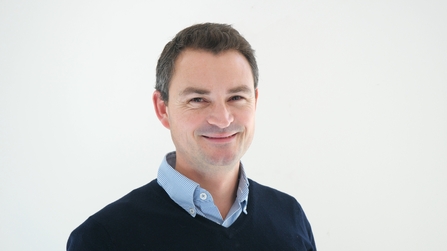
Henry lives in Winchester, close to where he was born and grew up on his family’s smallholding. On leaving Alton College he studied Chemistry before training to be a lawyer. Henry is currently the Director of Legal & Chief Risk Officer and Board Director for a large international specialist insurance company based in London. Henry enjoys long distance walking and has swum the Channel as part of a relay team. With his family, he participates in forest schools, beach cleanups and maintains his garden at home for birds, hedgehogs and insects. Henry brings with him a lifelong commitment to wildlife combined with the skills and disciplines of the private sector. He has a wealth of expertise in strategy, financial management, risk management and the law.
Helen McCormack, Safeguarding Trustee
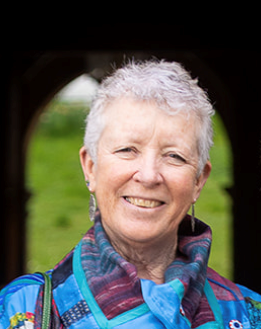
Helen McCormack
Helen has lived in Hampshire since coming to study at Southampton University in 1978. After qualifying as a doctor, she specialised in psychiatry and worked as a Consultant for over twenty years. Alongside her clinical practice, Helen has worked in managerial positions and at board level as well working nationally with the Department of Health and the Royal College of Psychiatrists.
Next to medicine, Helen’s greatest pleasure is in the natural world. She spends as much time outdoors as possible, both in her garden and running and walking around the local countryside. Alongside part- time medical work, Helen undertakes voluntary work in various horticultural settings, growing food to eat, and supporting the work of the Trust, particularly with a view to enhancing health and wellbeing through connection with nature.
Julian Roberts, Health and Safety Trustee
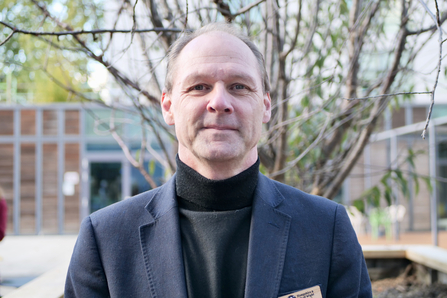
Julian originally trained as a marine scientist and commercial diver, and with a PhD in International Maritime Policy from the University of Wollongong, Julian’s career in marine management has spanned over 20 years, during which time he has undertaken a broad range of assignments in over 30 countries.
Prior to establishing Blue Resources Ltd, an international marine resource management consultancy, in 2017, Julian held a number of senior technical advisory roles in both the public and private sectors. He is currently a member of the IUCN World Commission on Protected Areas and is an Honorary Fellow of the Australian National Centre for Ocean Resources and Security.
Julian grew up in Hampshire, returning from overseas in 2011 to live in Hartley Wintney where he lives with his wife and their Golden Retriever. He enjoys walking, sailing (when he can) and motorcycle touring.
Oliver Cooper

Oliver began his career as a rural surveyor with a national firm based in Cirencester. He is a Rural Chartered Surveyor and Agricultural Valuer with experience in a wide range of land management issues. Oliver now lives and works on the Isle of Wight where he is the Senior Estate Manager for the National Trust, where his role also covers Hampshire & the South Downs. In recent years he has supported Nunwell Home Farm in establishing itself as a new entrant farming business with a central objective of farming in a way that helps to address the twin challenges of wildlife loss and climate change, whilst producing and selling high quality food. Away from work, Oliver enjoys exploring the Island with his family.
Matt Prescott
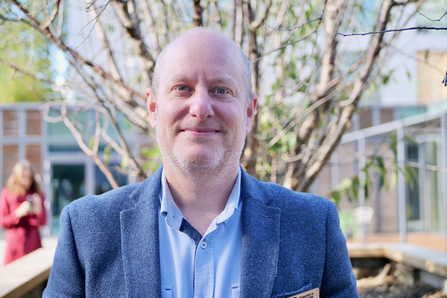
Matt is a sustainability adviser and champion of the creatures and landscapes that don’t fit the conventional mould. Following an Environmental Science Masters from UCL Matt worked in regeneration in Lambeth, responsible for the UK’s largest retrofit green roof and first certified sustainable timber-framed block of flats.
With a lifelong interest in the relationship between people and places Matt has led a policy programme on citizen engagement in climate change at the RSA and advised organisations on sustainability strategy. Gravitating towards big challenges Matt has worked on sustainability in aviation, large-scale biomass for energy and designing health outcomes into regeneration schemes.
A Fellow of the Royal Geographical Society, Matt possesses a stereotypical geographer’s love of maps. He is an avid walker.
Charlotte Rose
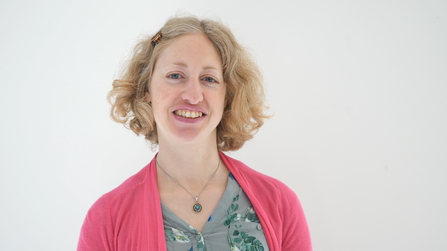
Charlotte graduated in 2005 from the University of Southampton with a Master of Environmental Sciences degree, specialising in ecology. Following a period of volunteering on Martin Down National Nature Reserve she became a Field Studies Instructor, introducing children to the coast and countryside of the Isle of Wight. As her career has progressed, Charlotte has worked with Wiltshire Wildlife Trust along with the statutory sector dealing with planning casework, as well as engaging with farmers and landowners in monitoring agri-environment schemes. Charlotte’s current role is with Natural England, specialising in the regulation and management of natural resources. When not immersed in her professional life, Charlotte enjoys painting landscapes and wildlife, drawing inspiration from around her home in Winchester.
Victoria Thorp
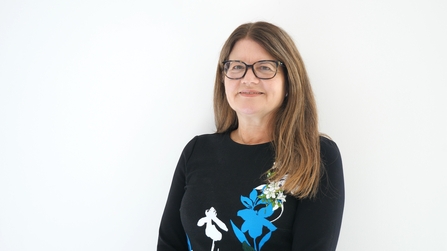
Victoria was born in South London where her grandfather introduced her to wildlife and allotment gardening. Having lived in Hampshire since 1990, first in the New Forest and now near Andover, Victoria studied for an Environmental Science degree as a mature student with the Open University. Victoria has held senior leadership operational roles in both the private and public sector, including at Wiltshire Police and most recently as Chief Operations Officer for a global technology company. She is an experienced people leader, influencer of organisational culture and EDI specialist, along with managing large-scale budgets, transformational change and key client relationships. Victoria believes in taking responsibility to continually make changes and choices which collectively have a positive impact on securing a future for wildlife.
William Vine
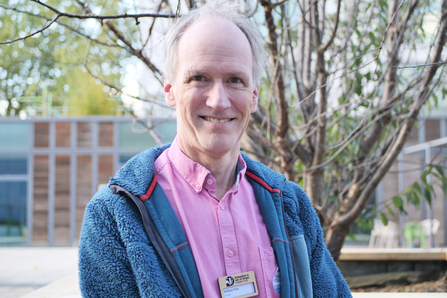
William has degrees in Chemistry and History along with a Master’s in Business Administration. His professional background is in telecoms and the ‘internet of things’ and he is currently developing a social enterprise, Rebalance Earth, which funds conservation by giving an economic value to nature-based solutions. William enjoys reconnecting with wildlife and working with conservation scientists.
Nature was an important factor when William chose Hampshire as his home, some 40 years ago. His love of nature and science go back to a childhood spent exploring Epping Forest and the Roding Valley, with an enduring passion for native trees and waterways. Since then, William has been involved with numerous scientific and nature conservation organisations. He enjoys exploring the coast and countryside and the Trust’s nature reserves on foot and by bicycle.
Alex Nicol-Harper, Associate Trustee
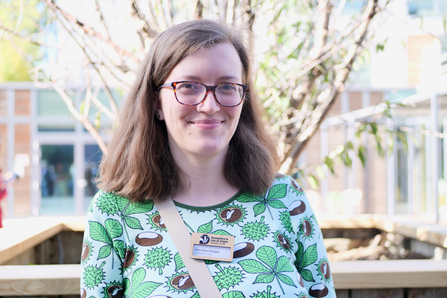
Alex is completing a PhD modelling seabird population dynamics at the University of Southampton, in collaboration with the Wildfowl & Wetlands Trust (UK) and Woods Hole Oceanographic Institution (USA). Her academic background is in ecology, including an MSc in Biodiversity, Conservation and Management at Oxford, with dissertation fieldwork studying urban bird populations in Tenerife. While her current research is desk-based and analytical, she produces non-technical summaries and outreach exhibits to share the implications for conservation with policymakers, practitioners and the general public.
Alex has previously volunteered for a range of conservation NGOs, including hands-on work in biodiversity recording, land management and aviculture. As the Trust’s first Associate Trustee, she is keen to offer a new perspective, as well as share insights from sitting on an Equality, Diversity and Inclusion committee for three years. A keen birder and wild swimmer, Alex enjoys watching the seasons change when out in nature.

